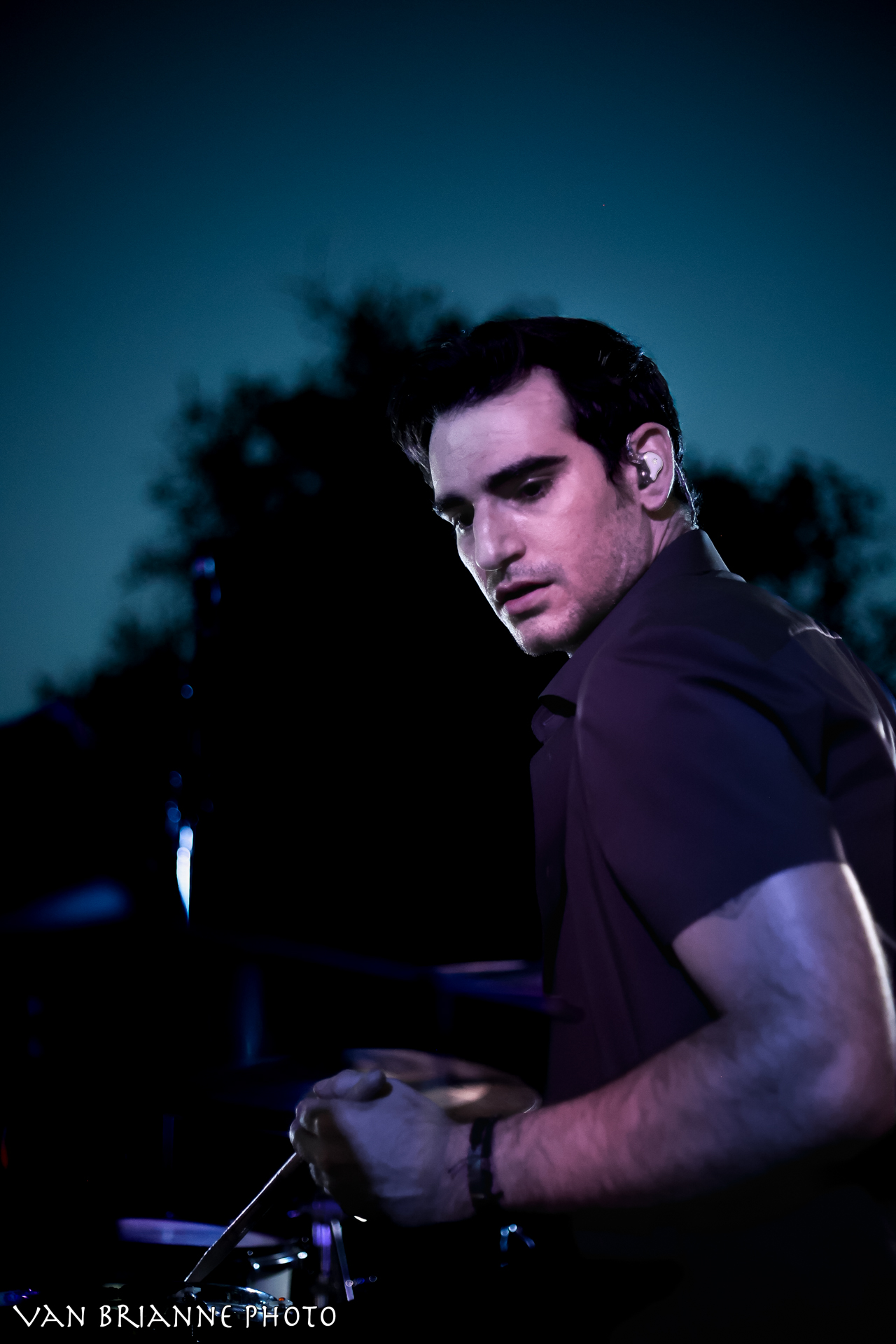We caught up with the brilliant and insightful Jon Mccracken a few weeks ago and have shared our conversation below.
Jon, looking forward to hearing all of your stories today. Can you tell us about a time that your work has been misunderstood? Why do you think it happened and did any interesting insights emerge from the experience?
Since I’d say 85% of my career involves working in a tribute act, I’m going to primarily focus on that. I’ve been working in tribute acts since 2015, and it’s giving me a livable income and allowing me to not need a day job (or to have to teach) which is a dream come true. It’s not the exact career path I was aiming for, but it’s still a full-time music career. Point is, I find myself to be very lucky to be where I am in my career and I am very grateful.
When I started working in tribute acts, I quickly discovered the stigma of tribute bands not only amongst some of the general public but with other musicians as well. It was a very intriguing and at first troubling finding. Musicians already have to deal with people in the industry trying to rip us off or steal our jobs, but to look at another group of musicians as lesser just because it’s a tribute act never made sense to me, at first.
Jealousy really drives a lot of people. I know because I was angry at other musicians who were more successful than me early on in my career, but it was because they had something I didn’t; a livable wage playing music. These critiques of tribute acts for being tribute acts are almost always given by people who didn’t get the career they wanted or had it and lost it.
Case in point, every once in a while my international touring Stones tribute band will get a negative comment on one of our videos, and I’ll take a look at the profile of the commenter. 100% of the time, the person who commented is also a musician but in a band that doesn’t work, or doesn’t make any real money. It happens to be the case EVERY TIME. Same thing on Instagram, Facebook, or anywhere any of my tribute acts gets negative criticism of no real substance. Even funnier is when the person has a video of their band playing a Rolling Stones song. It just made me realize that whenever there is a troll on the internet, it’s best to check out their profile because I’ll almost always find out why they’re a troll in the first place.
Criticism never really bothers me unless the facts are wrong, and to say that tribute musicians aren’t as skilled musicians is flat wrong. Which is also something I’ve heard quite often. Just like in the “real” music world, there are different levels of bands and musicians. I’ve played with musicians who should either get busy practicing or quit, and I’ve also had the pleasure of working with musicians who made me want to get busy practicing or quit. All in the tribute world. To be able to play the parts some tributes have to pull off can be a thing of wonder. And you MUST pull it off correctly because the fans can tell when you don’t know the part or can’t play it. Bands like Queen Nation, The Fab Four, Wild Child, and acts of similar caliber must have highly skilled musicians to perform their shows. You have to recreate the tone, the feel, just the overall sound while playing the part correctly AND while putting aside you’re own style of playing.
On a more personal level, I’m a drummer who doesn’t write music. So my entire music career would consist of playing other people’s music and/or pre-written drum parts anyway. The only real main difference is I have wigs, makeup, and specific wardrobe for some acts. My goal early on was to sit in a studio and record drums for various artists. While I’m currently not in a studio as much as I’d prefer, I still get paid to play drums for various artists. Not to mention, as a major classic rock fan, it’s all music I thoroughly enjoy.
And in full disclosure, the pay isn’t all that different from major non-tribute acts anyway. Not to brag too much, but I made more playing the Long Beach Lobster Festival with a tribute act than I did at Carnegie Hall with an original band. Weird brag. But at the end of the day, there are a lot of people out there who see what I and a lot of my colleagues do as not real music, or fake bands, or even not real musicians. And to those people, I say: I pay all of my bills, and have some money left over to buy things I don’t really need, playing The Rolling Stones, The Beatles, The Police, The Doors, Pink Floyd, Elton John, Billy Joel, and many more in theaters, amphitheaters, arenas, festivals, and cruises all over the world. Often sold out and often in the same venues as major non-tribute acts. When it comes to a career in music, I think I’m good. Also, I’m sorry your career didn’t take off.
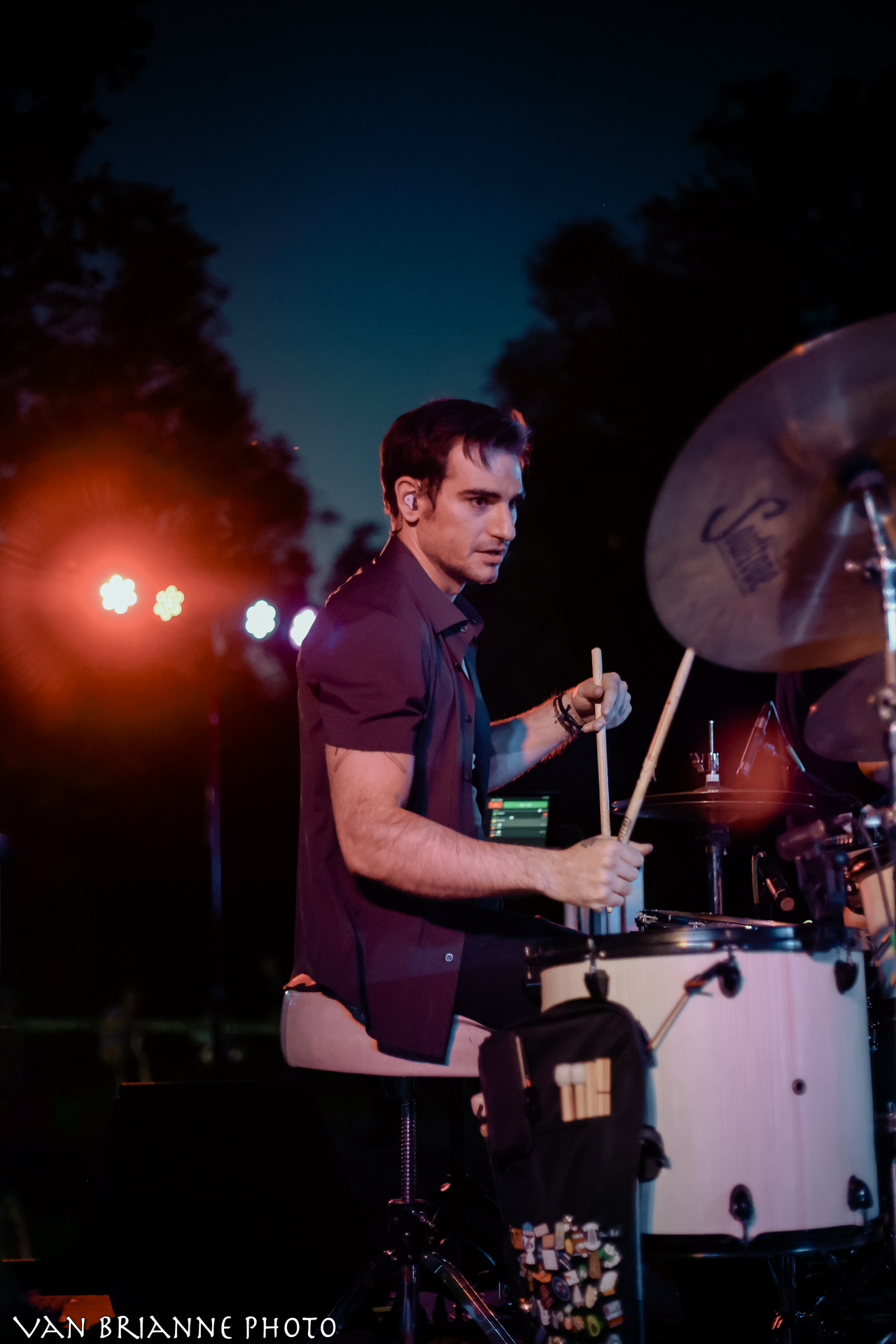
Great, appreciate you sharing that with us. Before we ask you to share more of your insights, can you take a moment to introduce yourself and how you got to where you are today to our readers.
I’m a born and raised Angeleno still residing in Los Angeles in my mid-30s, and I’ve been a professional drummer since 2008. Currently, I tour/record with around 15 acts and five stage shows that perform in venues all around the world. Music is all I do for a living. Most of the acts I perform with are tribute acts including Jumping Jack Flash, The Police Academy, and Wild Child. I’ve also had the honor of playing with The Chambers Brothers (the real ones!) for several years and was also the musical director for an Off-Broadway show called With A Little Help… It’s John Belushi!
Aside from music, I’m also the media manager for Jumping Jack Flash and The Police Academy which involves running the band websites, creating promo, and any on-stage media. I also co-own a booking agency called Fat Cat Booking which books tribute acts to venues throughout North America.
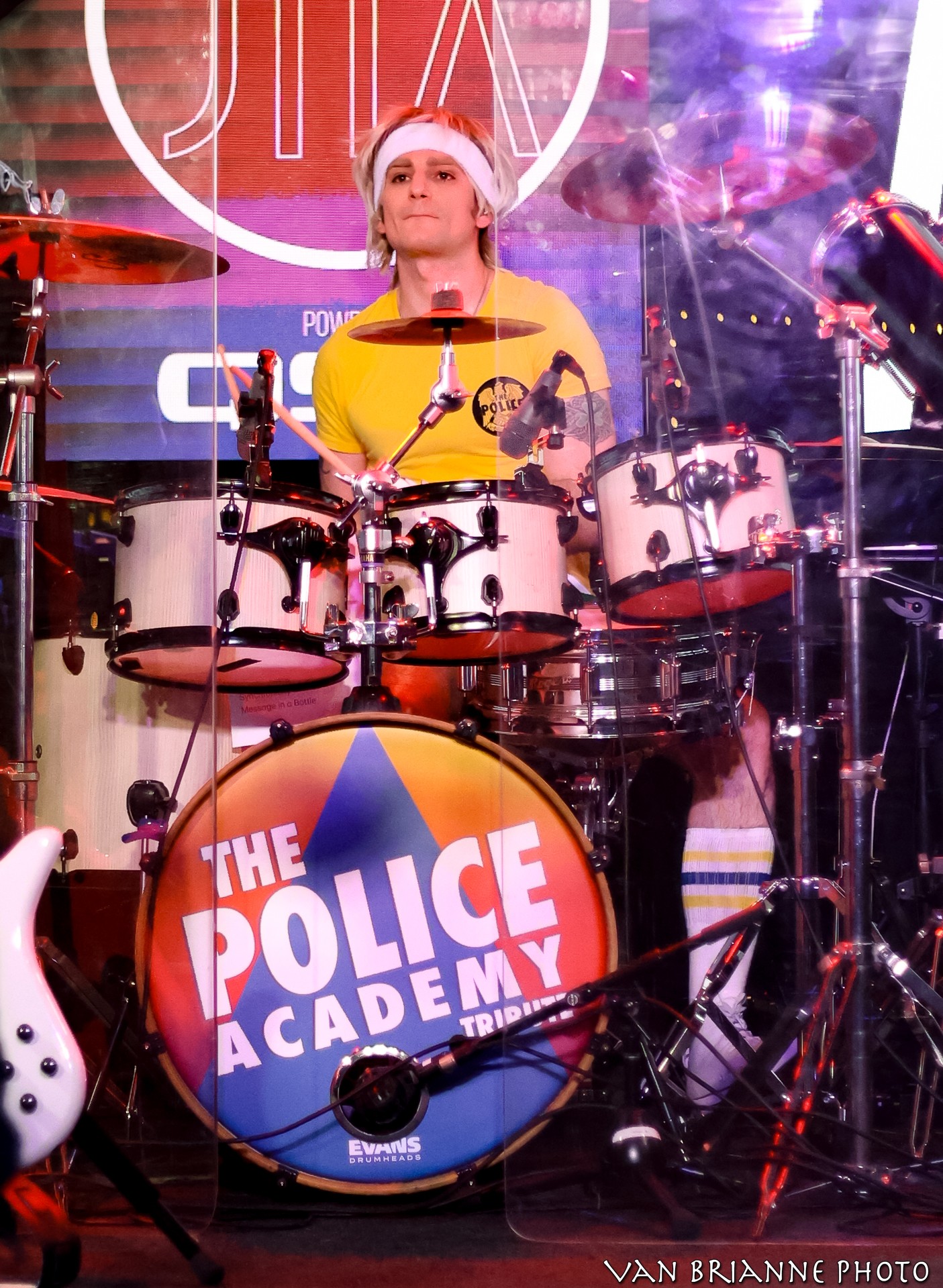
Looking back, are there any resources you wish you knew about earlier in your creative journey?
The way tech changes so quickly, it’s not so much resources I wish I knew about but more I wish existed! Learning specific drum parts off of tracks recorded in the 60s using four room mics can be tricky sometimes. Today we have access to isolated tracks on YouTube, on Reddit, all over the place. We also have incredible apps like Moises that separates instrument stems as well as I’ve ever heard before, and libraries of charts. I would’ve saved many, many, MANY hours if I had these resources in my early career.
And what is most crazy of all is that these tools haven’t been around all that long. I just started using Moises around four years ago and I first started seeing more isolated tracks online about the same time. Charts have been around forever, but I’ve never seen so many so easy to access.
When it works, tech has made my job playing the drums so much easier. I don’t regret having the early career I did, but it’s still my impossible wish.
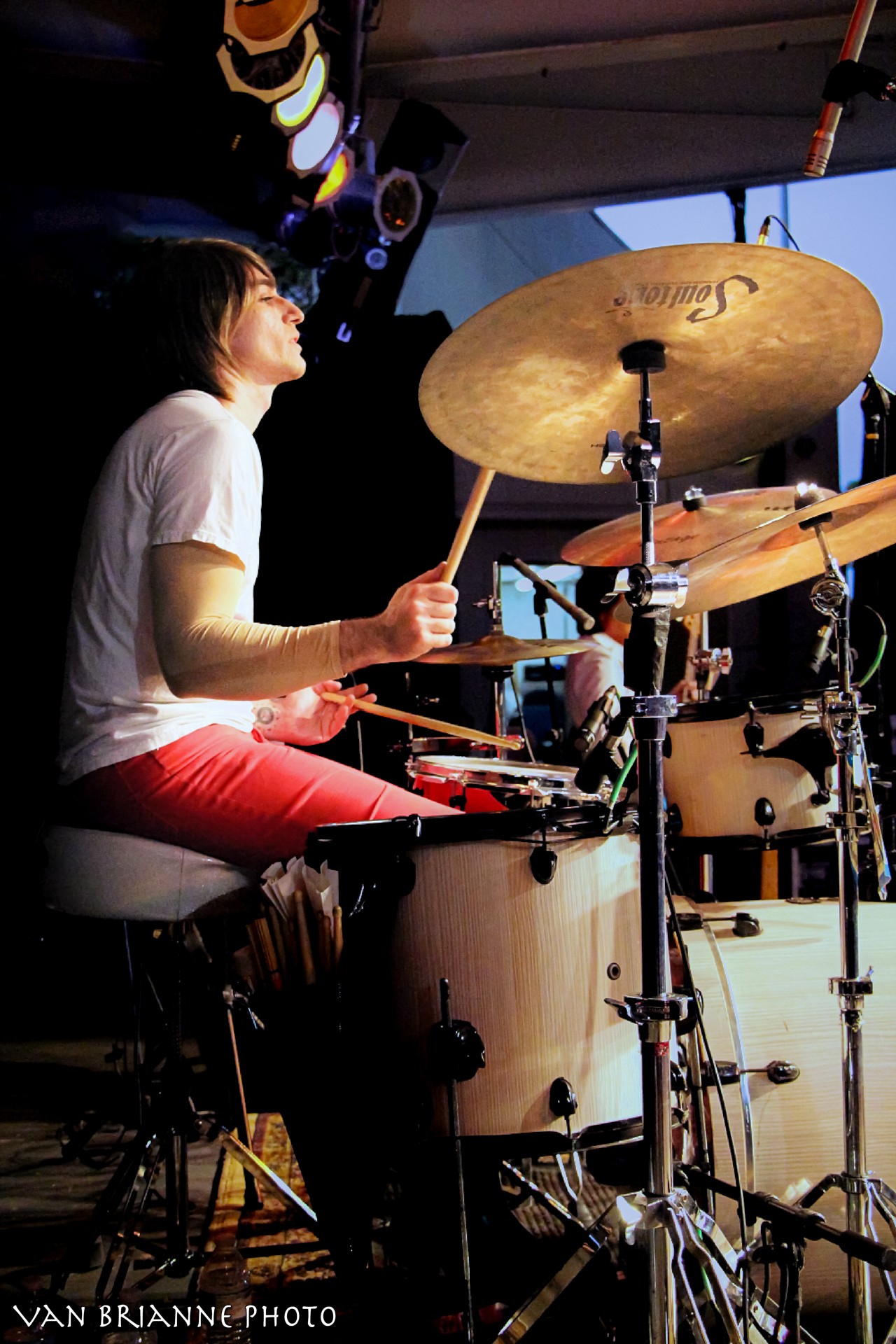
Is there a particular goal or mission driving your creative journey?
My drive is 70% wanting to play drums, edit videos, build websites, book gigs, and all that goes with my career. 30% of my drive derives from my need to avoid a day job. I’ve had a few in the past and I really don’t want another one. It may even be 65/35%, to be honest. I love music, I love playing the drums, I also love being my own boss and setting the hours I want. Which usually ends up being all day anyway.
It’s not easy to maintain, and there is usually no consistency of work throughout the year. Winters tend to be slower than Summers for me. But it drives me to come up with ways to make a living in music year-round. It may be selfish, I feel like most musicians’ answer would be to want to spread a message or something like that, but my drive is basically to make a comfortable living in music.
Contact Info:
- Website: https://jonmccracken.com
- Instagram: https://instagram.com/mcstix
- Facebook: http://www.facebook.com/mccracken90
- Twitter: http://www.twitter.com/jonmccracken
- Youtube: https://www.youtube.com/channel/UCot6S3zaStGzeqMpAmKfhxg
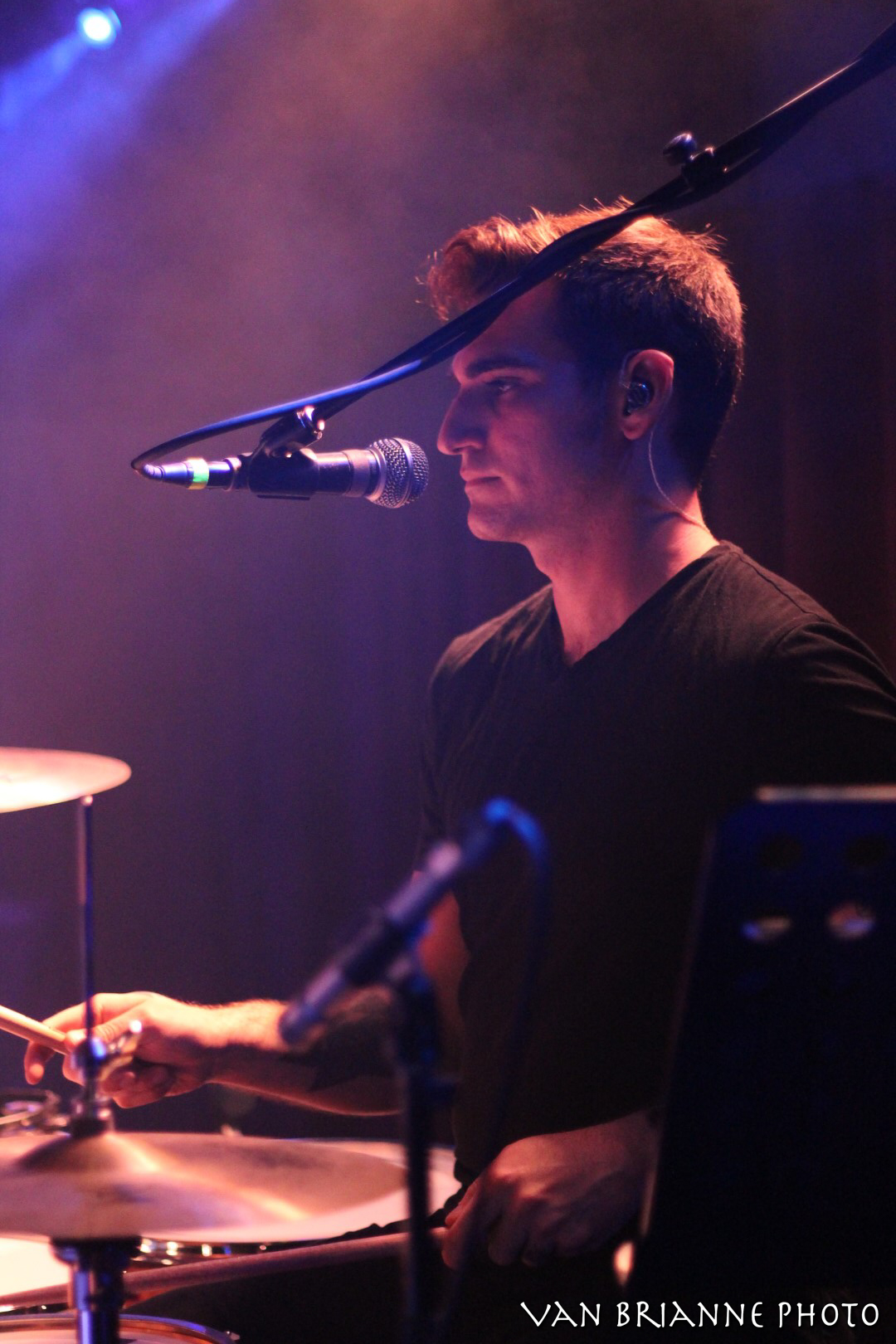
Image Credits
Van Brianne Photo


